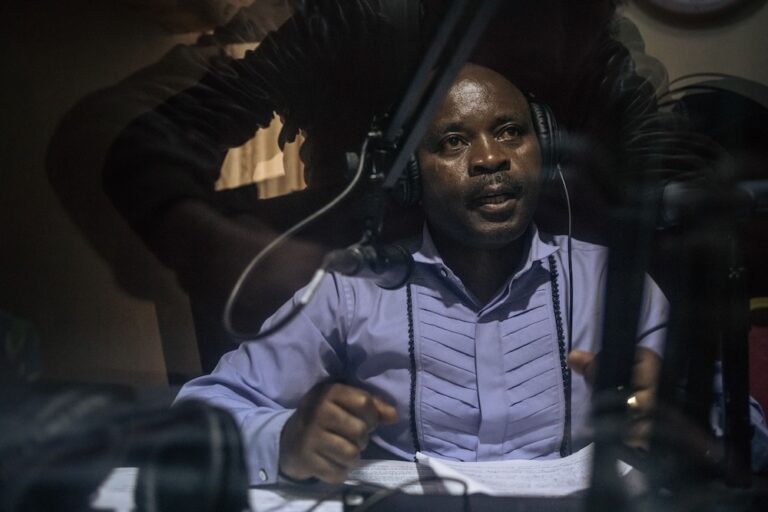(JED/IFEX) – On Tuesday 21 November 2000, in an editorial that aired at the beginning of the news, the public television station, Congolese National Radio-Television (Radiotélévision nationale congolaise, RTNC) accused the Kinshasa daily “Le Potentiel” of publishing lies. In its Wednesday 22 November issue (no. 2080), “Le Potentiel” published a right of reply by the […]
(JED/IFEX) – On Tuesday 21 November 2000, in an editorial that aired at the beginning of the news, the public television station, Congolese National Radio-Television (Radiotélévision nationale congolaise, RTNC) accused the Kinshasa daily “Le Potentiel” of publishing lies. In its Wednesday 22 November issue (no. 2080), “Le Potentiel” published a right of reply by the Popular Power Committees (Comités de pouvoir populaire, CPP), a political structure created by President Laurent-Désiré Kabila which is responsible for, among other things, condemning actions against the policies of the government in Kinshasa. In this right of reply, the leaders of the CPP called “Le Potentiel”‘s editors reactionaries and “enemies” who make “anachronistic analyses with the goal of diverting and disorienting our people”.
On Monday 20 November, “Le Potentiel” published an editorial which, among other things, purported that the economic measures recently taken by the Kabila government, “as opposed to improving the state of the national economy (…) do nothing but further erode the purchasing power of the average person”.
On 15 November, the RTNC called “Le Phare”, another daily, an enemy of the people (see IFEX alert of 20 November 2000). It is common knowledge that the RTNC editorials reflect the government’s point of view. The minister of communications, Dominique Sakombi Inongo, is a member of the CPP’s national directorate.


